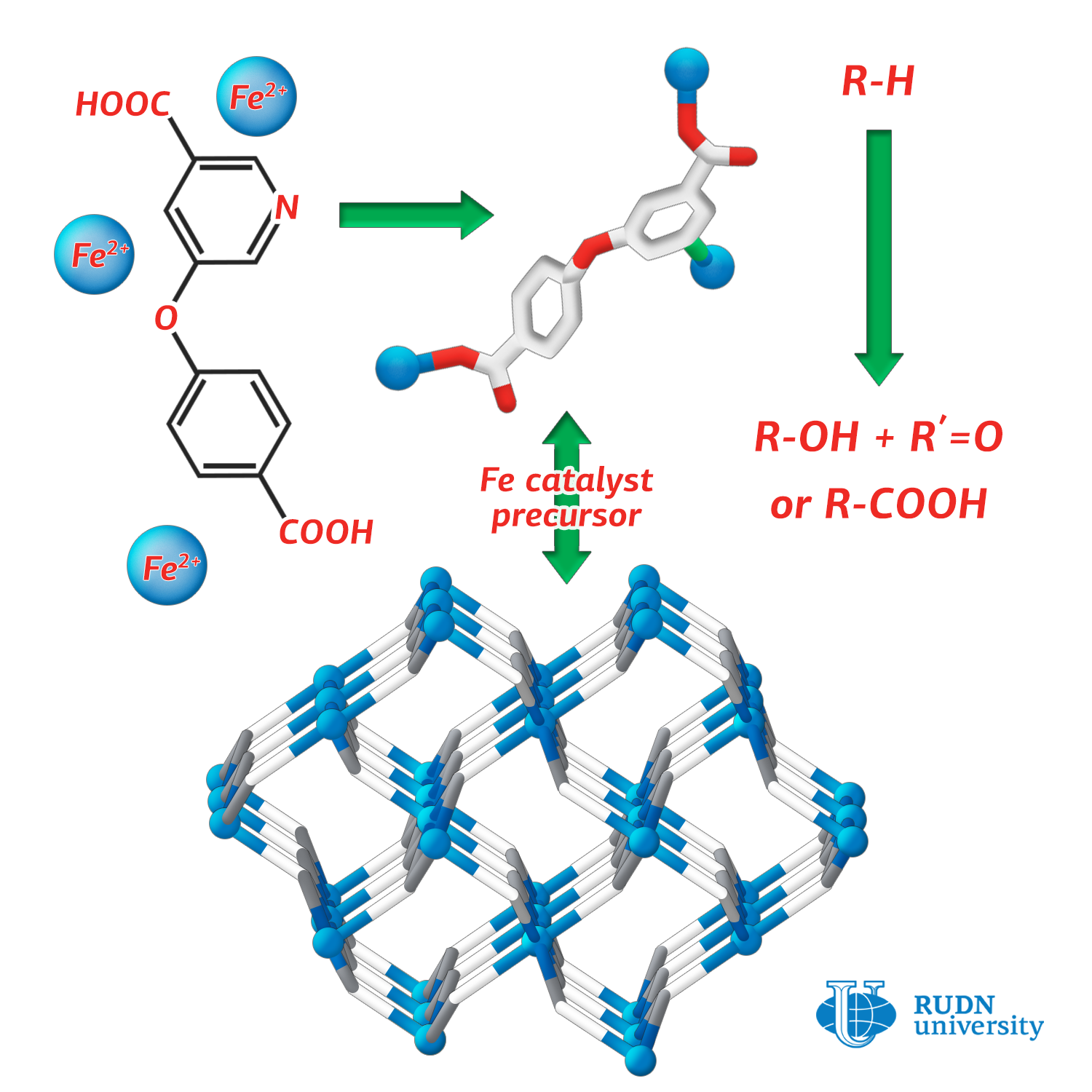RUDN University chemist synthesized a coordination polymer iron with a derivative of nicotinic acid

Coordination polymers are compounds that consist of a metal atom and surrounding organic ligands. They are often more stable than pure organic substances. RUDN chemist Alexander Kirillov used a nicotinic acid derivative (H2cpna) as a building block in the synthesis, and iron atoms played the role of the metal center. Substituted nicotinic acid can act as a ligand — it contains one phenyl and one pyridine ring, which are linked by an ether functional group.
To synthesize the polymer, the reaction was performed under hydrothermal conditions between iron (II) sulfate in water and H2cpna at 160 ⁰C. The synthesis lasted three days. X-ray diffraction analysis and other methods were used to confirm the structure and characteristics of the obtained substance.
The catalytic activity of the substance for different reactions was studied. Alexander Kirillov from RUDN conducted the processes of oxidation and carboxylation of propane and cyclic alkanes (saturated hydrocarbons closed in a cycle) under mild conditions. The reaction yield was 23%. For comparison, in the industrial process of oxidation of cyclohexane to cyclohexanol and cyclohexanone (products that are used in the production of plastics), the yield is only 5-10%.
The study of the catalytic activity of the polymer obtained by RUDN chemists showed that it can be used to catalyze the processes of oxidative functionalization of saturated hydrocarbons, and provide a greater yield for the reaction under mild conditions.
Article in Crystals magazine.
The project to develop a cellular model of the placenta became the winner in the Scientific Materials category of the Young Scientists 3.0 competition, organized with the support of the Presidential Grants Foundation and T-Bank.
Ten scientific journals published by RUDN University have been included in the highest level of the state list of scientific publications, the White List.
Forests are not only the lungs of the planet, but also home to millions of species. However, it has remained unclear how underground interactions between trees and fungi affect forest species richness in different climatic conditions. Previous studies have yielded conflicting results: in some regions, the dominance of certain fungi reduced tree diversity, while in others it increased it.
The project to develop a cellular model of the placenta became the winner in the Scientific Materials category of the Young Scientists 3.0 competition, organized with the support of the Presidential Grants Foundation and T-Bank.
Ten scientific journals published by RUDN University have been included in the highest level of the state list of scientific publications, the White List.
Forests are not only the lungs of the planet, but also home to millions of species. However, it has remained unclear how underground interactions between trees and fungi affect forest species richness in different climatic conditions. Previous studies have yielded conflicting results: in some regions, the dominance of certain fungi reduced tree diversity, while in others it increased it.